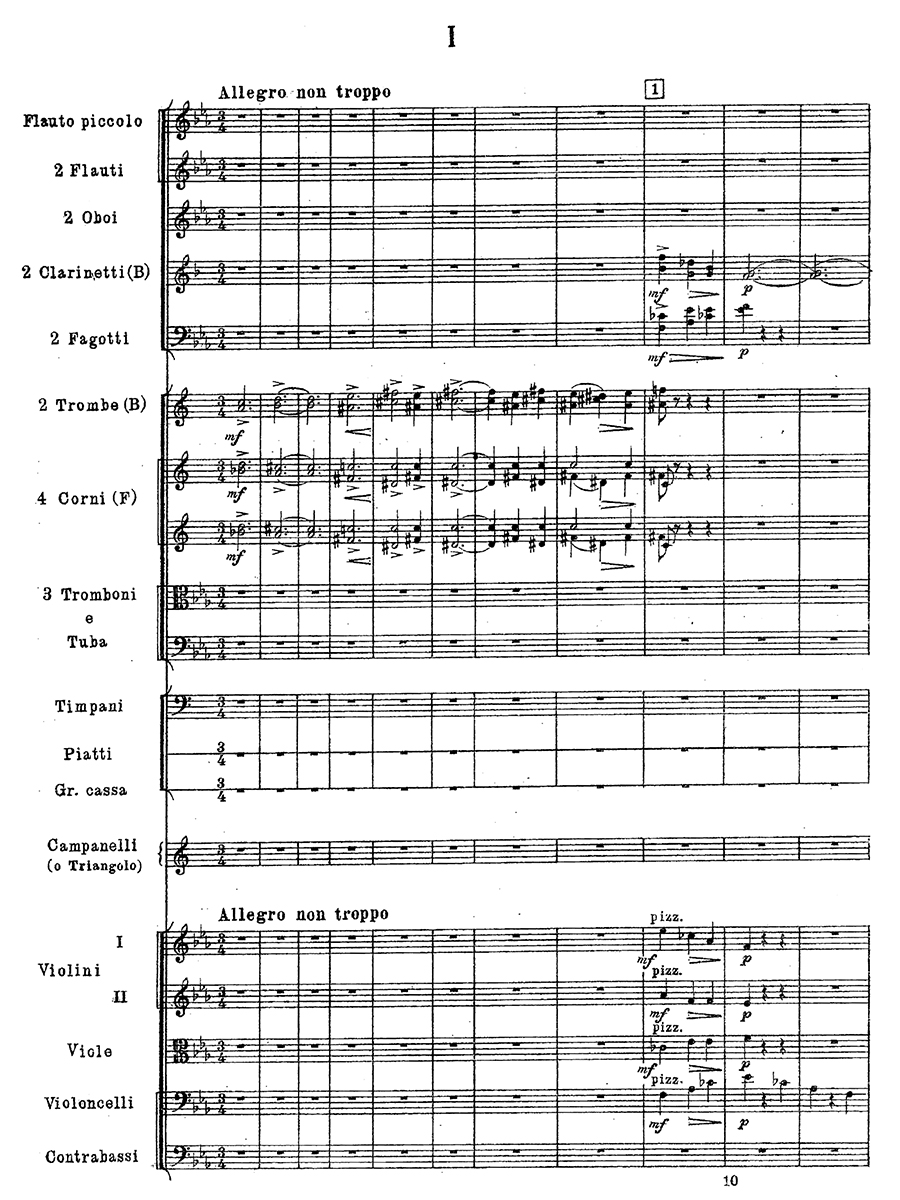Divertissement in E-flat Major, Op. 80 for Symphony Orchestra
Miaskovsky, Nikolai
27,00 €
Preface
Miaskovsky, Nikolai – Divertissement in E-flat Major, Op. 80 for Symphony Orchestra
(b. Modlin, Poland, 20 April 1881 – d. Moscow, 8 August 1950)
(1948)
Nearly every detail about Nikolai Myaskovsky contradicts common assumptions about the development of musical talent, cultural life in the Soviet Union, and the historical reception of now-forgotten composers. For example, Myaskovsky was born into a family of professional soldiers, yet his father supported Myaskovsky’s desire to study music. After the Russian Revolution, Myaskovsky remained an individualist in outlook and teaching style, regarded as “the musical conscience of Moscow,” yet he worked largely unmolested by the Soviet authorities until the 1948 Zhdanov decree. Finally, though a little-known figure today, Myaskovsky achieved an international reputation during the interwar period, including commissions and consistent performances of his works throughout the West. His life and works are a study in contrasts, with personal tragedy offset by professional success and intense emotional expression guided by respect for formal principles.
Nikolai Yakovlevich Myaskovsky was born at the Novo-Georgievsk fortress near the town of Modlin, in modern-day Poland. His father, Yakov Konstantinovich, was a military engineer, himself the son of a professional soldier who had taught at the Cadet College in Orel. Even Myaskovsky’s maternal grandfather served as supervisor at a military school in Nizhniy-Novgorod. Despite this martial tradition, the Myaskovsky family was cultured, often performing music in the home. Myaskovsky’s father sang while his mother played the piano; Myaskovsky himself would later play chamber music with his sisters Vera (b. 1885), Valentina (b. 1886), and Yevgeniya (b. 1890).
Myaskovsky’s mother, Vera Nikolayevna, died from pneumonia when he was nine years old. Already a quiet and introverted child who preferred the solitude of nature to noisy crowds or chaotic children’s games, his mother’s death caused Myaskovsky to withdraw further into himself. He became unwilling to share his innermost thoughts and feelings with others, at times remaining silent for hours – even days – at a time.
To help raise the children, their father’s sister, Yelikonida Konstantinova Myaskovskaya, came to live with the family. Her imperious personality coupled with a conscientious approach to duty made her something of a mixed blessing. She was a former member of the Mariinsky Opera chorus, however, and gave Myaskovsky his first music lessons. This was an unalloyed gift. Music became his primary means of self-expression – what Myaskovsky’s biographer Gregor Tassie called his “driving force.” …
Full preface / Komplettes Vorwort > HERE
Score Data
| Edition | Repertoire Explorer |
|---|---|
| Genre | Orchestra |
| Size | 210 x 297 mm |
| Printing | Reprint |
| Pages | 114 |
